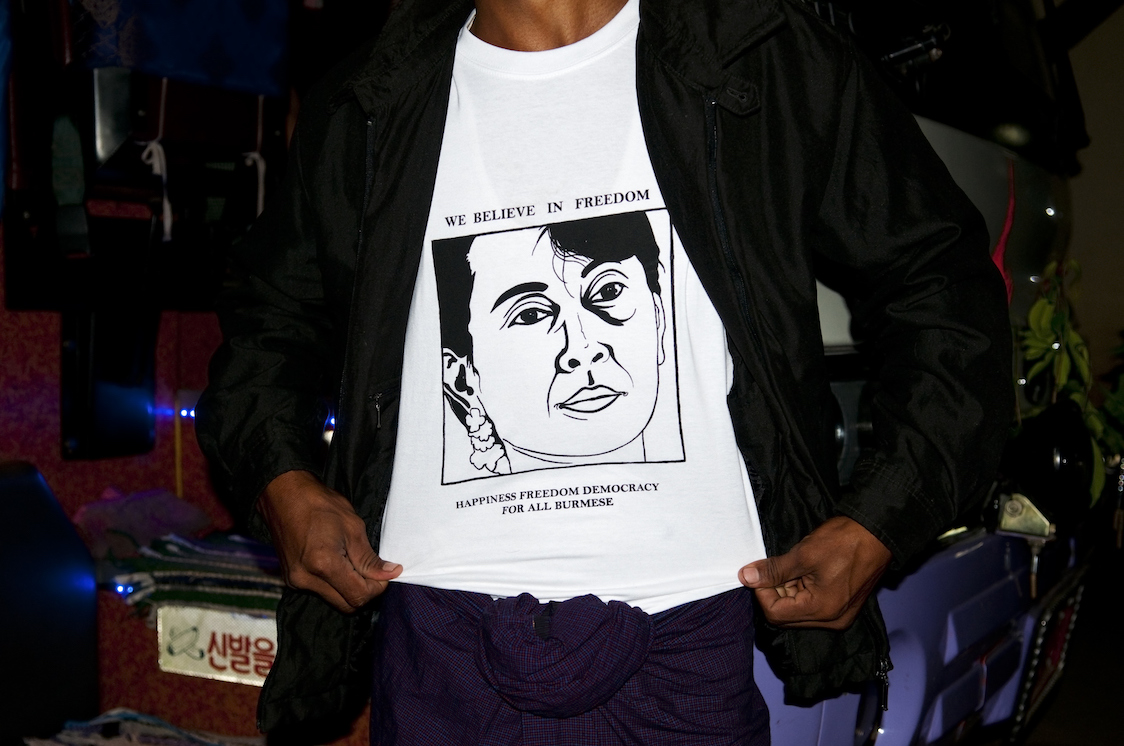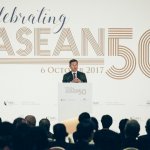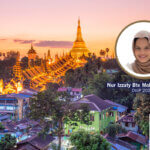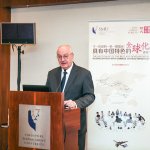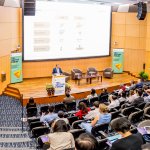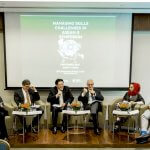By the SMU Social Media Team
Nobel laureate Aung San Suu Kyi was always widely regarded as an icon for freedom. But this flawless image is now challenged as international outrage erupts over her failure to condemn the Myanmar military’s crackdown in the Rakhine State.
Explanations for her supposed insouciance range from political ambition, fear of losing popularity to inherent bigamy.
Yet Ma Thida, a human rights activist and former political prisoner, reminded attendees at a talk focused on Aung San Suu Kyi’s Leadership and Female Voices organised by the Wee Kim Wee Centre at Singapore Management University, of the complexity of the matter—imploring everyone to look at the matter as a whole.
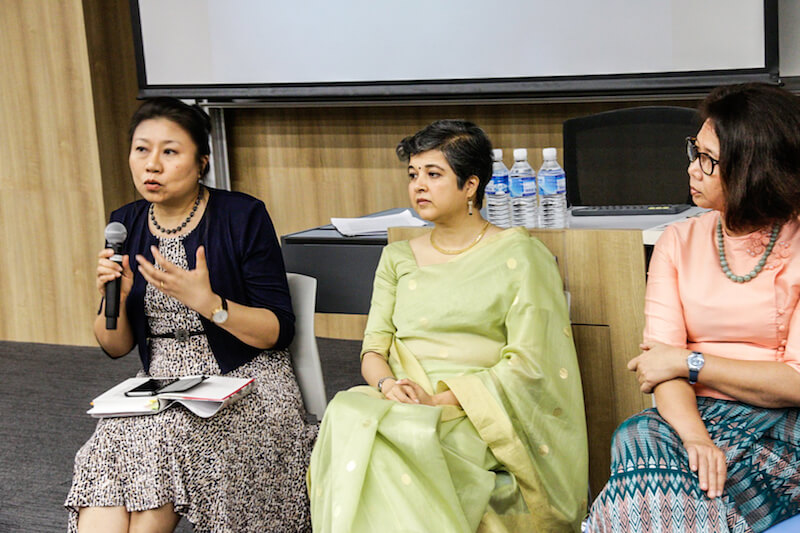
(Left to right) Ma Thida, Nilanjana Sengupta and Moe Thuzar speaking at the Wee Kim Wee Centre event.
While the international press has the propensity to whittle down the conflict along religious or ethnic lines, this account is far too simplistic, says Thida.
“Because of the heavy censorship and propaganda, the rest of the world doesn’t know much about us,” says Thida. “That’s why when there’s more information on one group they feel it represents Burma.”
“We [the Burmese] have been very naïve because of the censorship,” she says. “And at the same time, the rest of the world suffers a little naïvety because of the lack of information.”
The border between Bangladesh and Myanmar has always been porous, reminds Nilanjana Sengupta, who launched the Burmese translation of her book, The Female Voice of Myanmar: Khin Myo Chit to Aung San Suu Kyi, during the same event.
Every time Bangladesh is hit by a natural, political or economic disaster, large numbers of Bangladeshis cross into Myanmar, says Sengupta.
For the nearly 600,000 Rohingya refugees who have fled Myanmar since then, a resolution is desperately needed. The UN describes it as “the fastest growing refugee emergency in the world.”
Even though many in the international community may point the finger at ‘Daw Suu’, or ‘Aunt Suu’, as the Burmese often address Aung San Suu Kyi, Sengupta points out the truth about her leadership is that it is sharply limited, with the military in charge of defence, border security and home affairs. The 2008 constitution makes her ineligible for Presidency, hence her current official title as State Counsellor. It also gives unbridled power to the military, whereby the army takes up 25% of the seats in parliament, Sengupta continues.
Aung San Su Kyi wants to amend the constitution and become President but this requires military support, continues Sengupta. And for all her opposition to the junta, she still retains links to the military through her father.
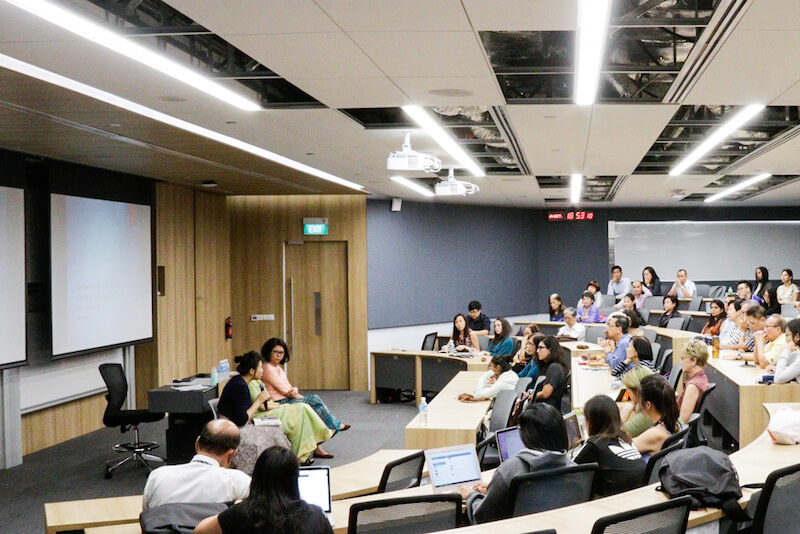
“I have a feeling that in certain ways she tries to justify her father’s legacy and his formation of the army,” says Sengupta. “And perhaps she’s not as aggressive with the Burmese army because of this reason.”
Spiritually speaking, Aung San Suu Kyi may also be torn, suggests Sengupta. It is well known that she has devoted herself to Buddhism, and the late Sayadaw U Pandita, who was her guru, mentioned that Muslims needed to be evicted from the country in a meeting with Sengupta.
Still, Bangladeshi media reports suggest Aung San Suu Kyi is “appalled” at the crisis and is determined to fix it.
Despite the ascent to free elections in 2015, Ma Thida hints how the culture of fear is still pervasive throughout the country.
“This situation is worse than the coup because we lost the common enemy,” says Thida. “During the military regime, everyone acknowledged a common enemy. Now society is more diverse, more disintegrated with more distrust for each other.”
“With the Western media and human rights groups completely turning against Daw Suu, the military’s voice as a saviour of the nation is getting stronger, which is actually quite scary,” warns Sengupta.
“We need to remember what the other option to Daw Suu is,” she says. “And frankly, that isn’t an option.”
The main takeaway, concluded Moe Thuzar, the moderator of the event and lead researcher at the ASEAN Studies Centre of the ISEAS-Yusof Ishak Institute, is that nothing is binary.
Black and white do not exist in Myanmar because there are huge shades of grey, relates Thuzar. Polarising politics have long been entrenched by previous authoritarian regimes, which is, unfortunately, the reality that the NLD have inherited.

